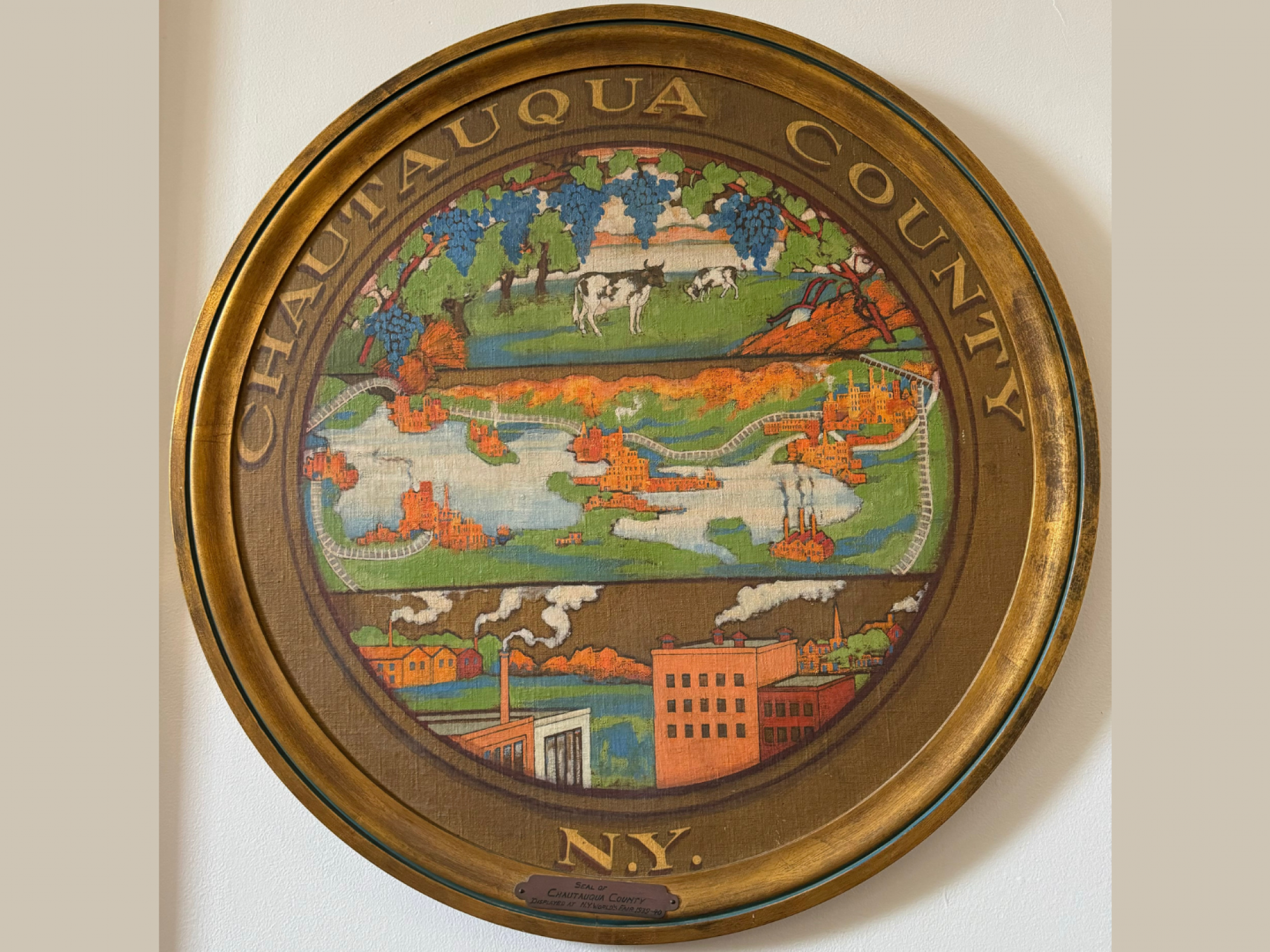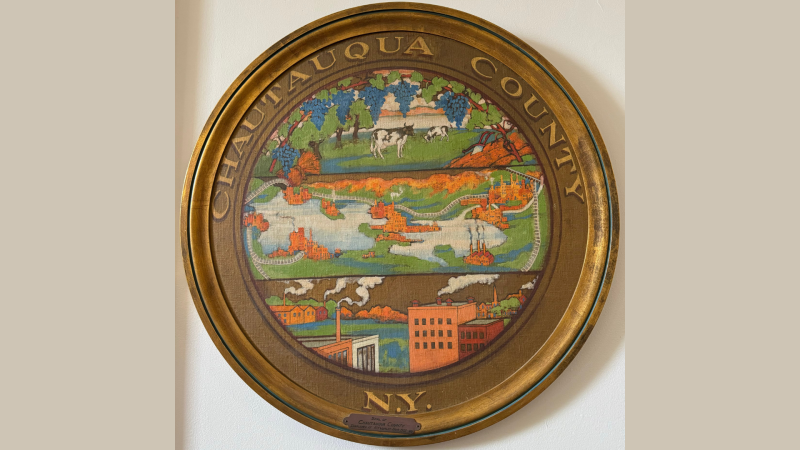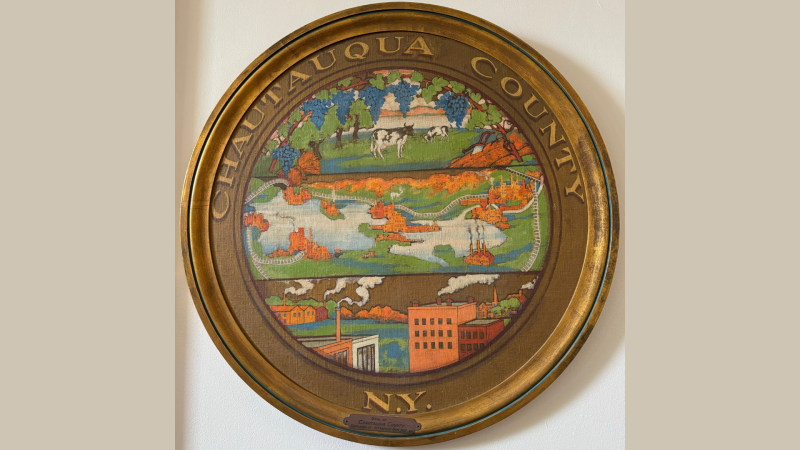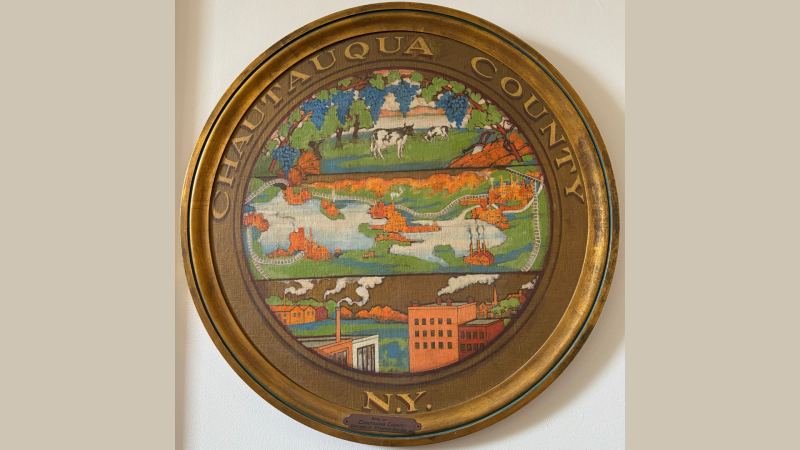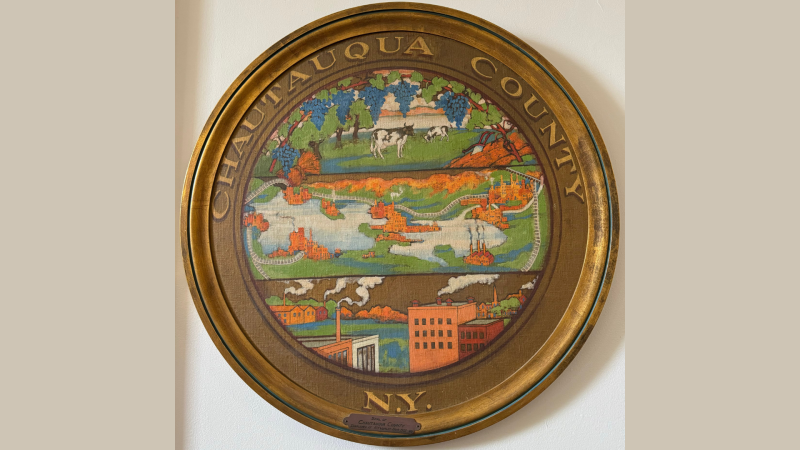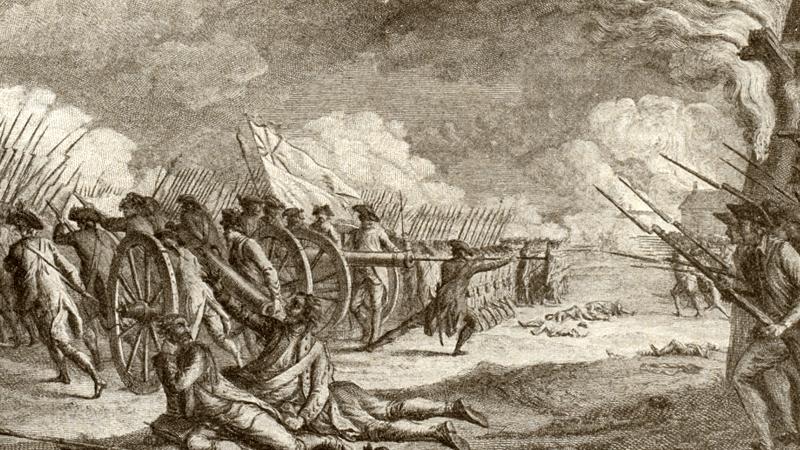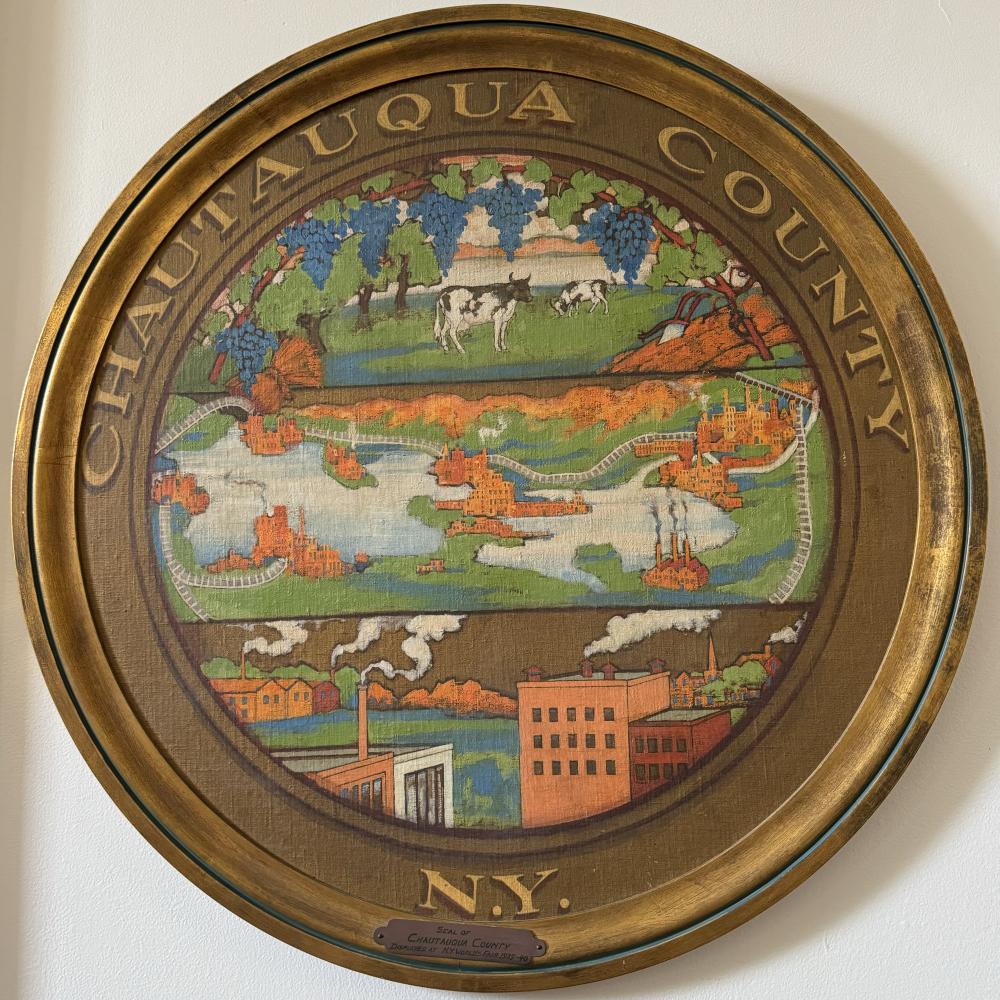
(Seal of Chautauqua County displayed at the New York World's Fair 1939-1940.)
By Norman Carlson, Chautauqua County Historian
As we delve into the history of Chautauqua County, the week of July 28 to August 3 offers a fascinating glimpse into the past, marked by community developments, technological advancements, and significant cultural events.
July 28:
- 1855: At 5:30 PM, the first rowing regatta took place on Chautauqua Lake, highlighting the region's enthusiasm for aquatic sports.
- 1858: A picnic attended by 463 people was held at the future site of the Chautauqua Institution, a precursor to the cultural hub it would become.
- 1897: Warren Packard, instrumental in the development of Lakewood, passed away in Warren, Ohio.
- 1909: The first airship (blimp) flight in Chautauqua County took off from Celoron Park, marking a milestone in local aviation history.
- 1942: A tragic locomotive collision occurred in Jamestown at 4:08 PM, resulting in fatalities.
- 1995: MRC plants in Jamestown and Falconer temporarily closed as part of a federal investigation into dirty bearings.
- 2012: Veterans' Memorial Park was established at Logan Park in Jamestown, moving from its previous location on East Second Street.
July 29:
- 1868: A mowing machine (for hay, not lawns) demonstration was held in Busti, showcasing agricultural advancements.
- 1870: Baseball was outlawed in downtown Jamestown, reflecting the town's evolving social regulations.
- 1898: The Knights of Aurora received their charter in Jamestown, adding to the area's fraternal organizations.
- 1929: Groundbreaking took place for the Jamestown Telephone Building, signifying progress in communication infrastructure.
- 1951: The steamboat City of Jamestown made its last public run, ending a notable chapter in local transportation history.
July 30:
- 1867: In Owego, 14 students from the Jamestown Union School & Collegiate Institute gave a revolutionary gymnastics demonstration.
- 1897: The first "horseless carriage" passed through Chautauqua County, heralding the advent of the automobile era.
- 1921: Allegany State Park was opened, providing a new recreational area for residents and visitors.
- 1965: Gerald Ford spoke at Chautauqua during the "Face the Press" event, underscoring the region's engagement with national figures.
July 31:
- 1860: Some areas experienced frost, a notable weather event for the summer season.
- 1874: The Cowings (Lakewood) Post Office was established, enhancing mail service in the area.
- 1888: James Whitcomb Riley, the famous poet, spoke at Chautauqua, adding to the institution's cultural legacy.
- 1912: John Anderson of Busti tragically died after mistakenly drinking carbolic acid, thinking it was medicine.
- 1937: The Sixth Street Bridge in Jamestown was opened, improving local transportation.
- 1941: The first Busti Firemen's Gala Days began, starting a community tradition.
- 1945: The first Gerry Rodeo began, becoming a beloved local event.
- 1948: Carroll District #2 Union Free School was dissolved into the Frewsburg Central School district, consolidating educational resources.
- 1956: The first chemical weed treatment in Chautauqua Lake using sodium arsenite was conducted, marking an effort to manage aquatic vegetation.
August 1:
- 1863: The Jamestown Union School Board of Education was organized, setting the foundation for the town's educational system.
- 1872: A "Colored" picnic was held at Griffith's Point, reflecting the social activities of the time.
- 1879: The Chautauqua Institution was connected to Mayville by telegraph just before this date, improving communication.
- 1879: Chapin Hall of Busti hired Clarence Gifford to install the first telephone and line in Busti to his business in Jamestown, completed by this date.
- 1881: The Allen Opera House in Jamestown burned down, a significant loss for the local arts community.
- 1910: The International Bible Students' Association Convention in Celoron attracted 4,500 attendees.
- 1915: The Lakewood Volunteer Fire Department took possession of the first motorized fire truck in New York State, a significant upgrade for local emergency services.
- 1926: The Third Street Bridge in Jamestown opened, further enhancing the city's infrastructure.
- 1927: Charles Lindbergh flew over Jamestown and dropped a greeting, thrilling local residents.
- 1942: Westfield Hospital opened, expanding healthcare services in the area.
- 1949: The new Girls Club building at 532 East Second Street in Jamestown was dedicated, providing a space for community activities.
- 1960: The switch over time for alternate parking in Jamestown changed from 7 PM to 10 AM, reflecting evolving parking regulations.
- 1974: The first flight of Chautauqua Airlines, a commuter service, took place with 11 passengers on board.
- 1987: Bigelow's Department Store in Jamestown closed, marking the end of an era for the local retail scene.
August 2:
- 1882: The H. C. Sturdevant Post 282 of the Grand Army of the Republic was chartered, the first in Chautauqua County.
- 1889: The first Grange Day at Chautauqua Institution was celebrated, highlighting agricultural traditions.
- 1894: The Allen Opera House burned down again at 9:10 PM in Jamestown, a repeated misfortune for the community (later rebuilt).
- 1956: Cora Gillis, on the second floor of the Fenton Mansion in Jamestown, closed the books on the Grand Army of the Republic after the last Civil War veteran died.
- 1959: In the Town of Perry (Cattaraugus County), historian Eber Russell had a boulder turned over on the Hubbard Farm in West Mud Lake, revealing alleged Norse runes with 20 witnesses present.
- 1977: The Chautauqua County Genealogical Society was organized at a meeting in the Dunkirk Library, fostering interest in local family histories.
August 3:
- 1860: Elisha Baker of Poland reported a wheat yield of 30 bushels per acre. Today, New York farmers achieve yields of around 70 bushels per acre.
- 1885: The first Swedish Day at Chautauqua Institution was celebrated, honoring the contributions of Swedish immigrants.
- 1925: The cornerstone for the First Presbyterian Church in Jamestown was laid, marking the beginning of a significant religious building.
- 1956: Ashville was absorbed into the Panama Central School district, continuing the trend of school district consolidations.
These historical events reflect the rich tapestry of Chautauqua County's past, highlighting the area's resilience, progress, and community spirit.

